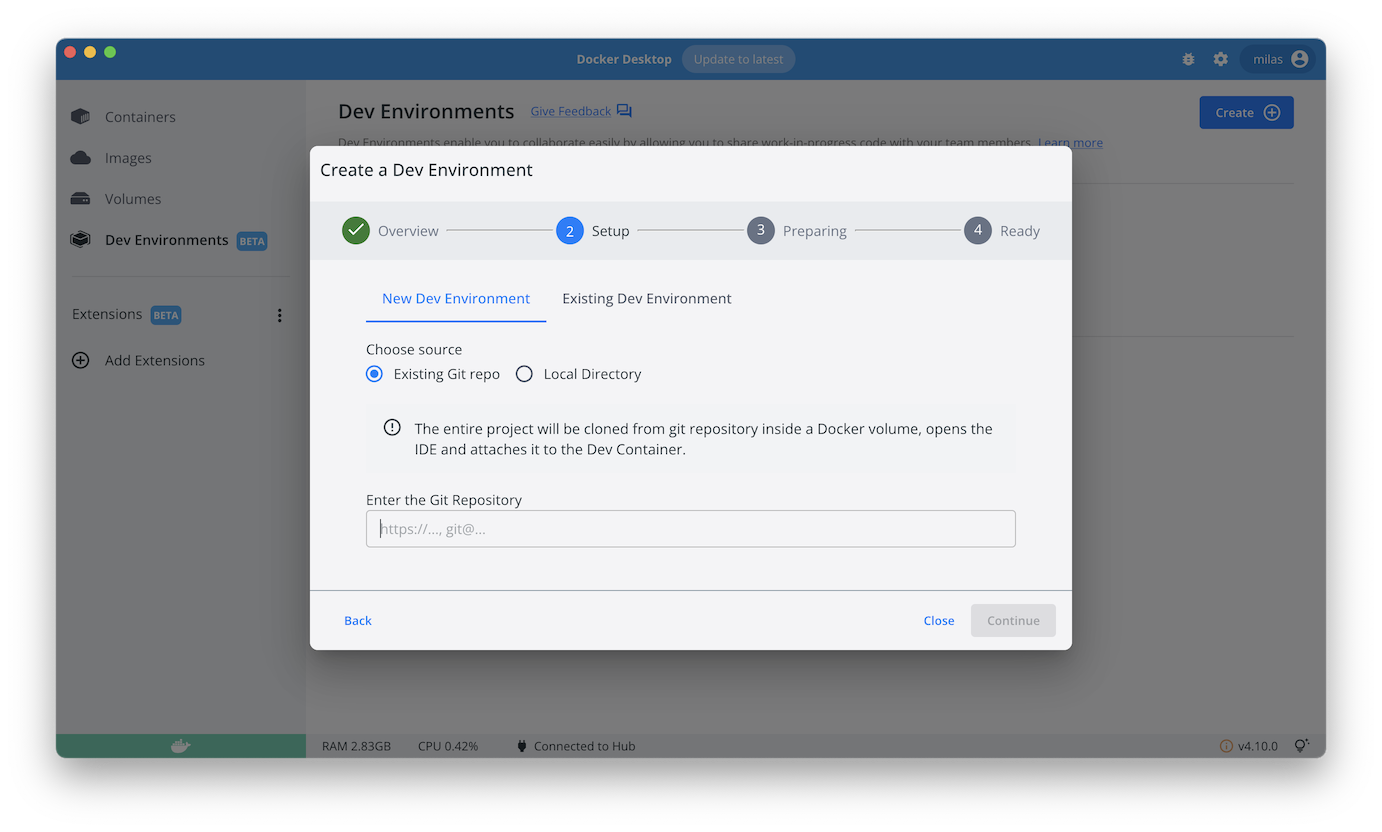* Add Docker Desktop Developer Environments config * Upgrade from Go 1.13 (🙀) to 1.18 * Rename `frontend` -> `proxy` for clarity & consistency with other samples * Add Chi as a dependency to provide an example of Go module dependencies for parity with other samples Signed-off-by: Milas Bowman <milas.bowman@docker.com>
Compose sample application
NGINX proxy with Go backend
Project structure:
.
├── backend
│ ├── Dockerfile
│ └── main.go
├── compose.yaml
├── proxy
│ └── nginx.conf
└── README.md
services:
proxy:
image: nginx
volumes:
- type: bind
source: ./proxy/nginx.conf
target: /etc/nginx/conf.d/default.conf
read_only: true
ports:
- 80:80
depends_on:
- backend
backend:
build:
context: backend
target: builder
The compose file defines an application with two services proxy and backend.
When deploying the application, docker compose maps port 80 of the frontend service container to the same port of the host as specified in the file.
Make sure port 80 on the host is not already in use.
Deploy with docker compose
$ docker compose up -d
Creating network "nginx-golang_default" with the default driver
Building backend
Step 1/7 : FROM golang:1.13 AS build
1.13: Pulling from library/golang
...
Successfully built 4b24f27138cc
Successfully tagged nginx-golang_proxy:latest
Creating nginx-golang_backend_1 ... done
Creating nginx-golang_proxy_1 ... done
Expected result
Listing containers must show two containers running and the port mapping as below:
$ docker compose ps
NAME COMMAND SERVICE STATUS PORTS
nginx-golang-backend-1 "/code/bin/backend" backend running
nginx-golang-proxy-1 "/docker-entrypoint.…" proxy running 0.0.0.0:80->80/tcp
After the application starts, navigate to http://localhost:80 in your web browser or run:
$ curl localhost:80
## .
## ## ## ==
## ## ## ## ## ===
/"""""""""""""""""\___/ ===
{ / ===-
\______ O __/
\ \ __/
\____\_______/
Hello from Docker!
Stop and remove the containers
$ docker compose down
Use with Docker Development Environments
You can use this sample with the Dev Environments feature of Docker Desktop.
To develop directly on the services inside containers, use the HTTPS Git url of the sample:
https://github.com/docker/awesome-compose/tree/master/nginx-golang
